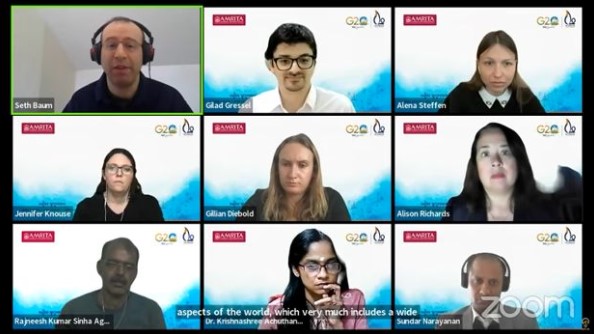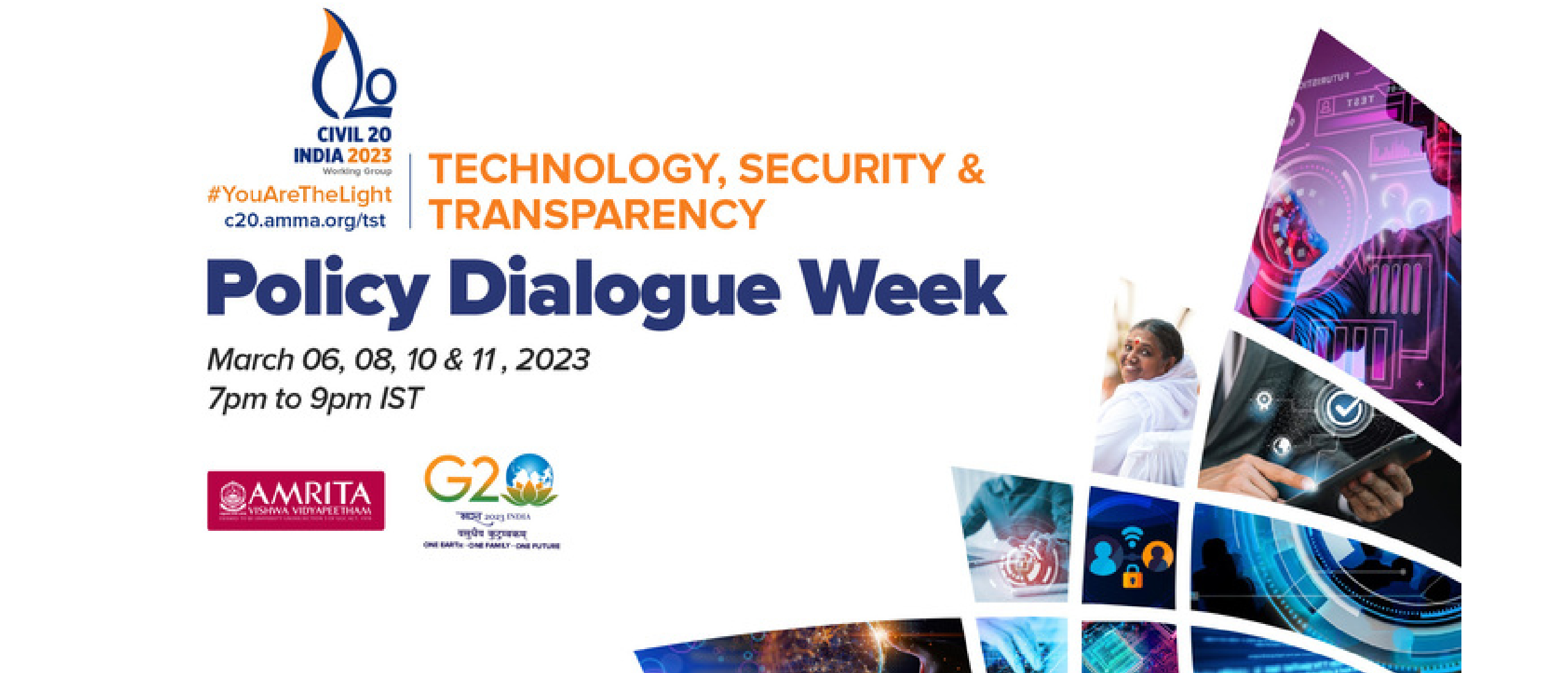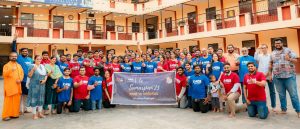Policy Dialogue Week kicked off on March 6, with the first dialogues around “AI and Data for Society.” Civil Society Organizations (CSOs) and Non-Governmental Organizations (NGOs) from over 20 countries joined the online meeting and shared their recommendations for using AI and Data responsibly. The participants collaborated on the C20 working group for Technology, Security, and Transparency.
The recommendations and policy proposals resulting from the deliberations aim to help shape international policies and practices related to technology, security, and transparency and ensure that they represent the voices and perspectives of civil society.
The discussion highlighted best practices, identified gaps in Artificial Intelligence (AI) and data governance policies, and provided a venue to learn from experienced CSOs. The policy dialogue gains significance as the world moves towards a new age of automation and data-driven decision-making. Hence, it becomes imperative to consider both these technologies’ positive and negative impacts.
Nidhi Sinha, Research Fellow at the Center for AI and Digital Policy, presented the importance of AI policy and the role of lawmakers in ensuring fundamental rights are protected.
Valeria Milanes, Executive Director at ADC – Asociación por los Derechos Civiles, highlighted the importance of implementing AI technologies between countries in both North and South America for better equity.
Ryan Carrier, FHCA, Executive Director and Founder of ForHumanity, pinpointed the need for independent audits of AI systems to be able to hold organisations accountable for their use of such technologies.
Soledad Magnone, Director of JAAKLAC iniciativa shared successes in using social media to showcase the hopes and fears of youth in using AI and how conducting free, virtual workshops can make information more easily accessible.
Gillian Diebold, Policy Analyst at the Center for Data Innovation, emphasised the importance of collecting data in an equitable manner for greater digital equality.
Rudradeb Mitra, Founder of Omdena, commented on how AI solutions are currently not adoptable due to a lack of trust and offered suggestions to make them transparent and ethical.
Seth Baum, from the Global Catastrophic Risk Institute, explored ways to reduce AI risks through a holistic approach and also expressed intent in having more geographic diversity in this field.
Sundar Narayanan, Advisor from AI Tech Ethics, identified the critical need for policies around public procurement and highlighted the importance of easily implementable controls to protect the people.
Domen Savič, CEO of Citizen D Zavod Državljan D, recommended including civic society in digital policy development to ensure their ideas are heard and worked on for implementation.
Sumit Ghosh, Director of Sankalp Micro Association, spoke to the challenge of having the public understand the macro-scale societal impact of AI.
Coenraad Loubser, Founder of Where Innovation Serves Humans (WISH), called for technical standards to ensure fair and equitable internet access for all.
Rajneesh Kumar, Executive Director from Sinha Agrani Bharat Abhiyan Foundation Trust, emphasised the importance of monitoring laws to society relevant policy developments.
Closing remarks were delivered by Alison Richards, who underlined the importance of CSOs in developing the right policies around AI and Data for local communities.





